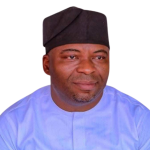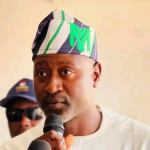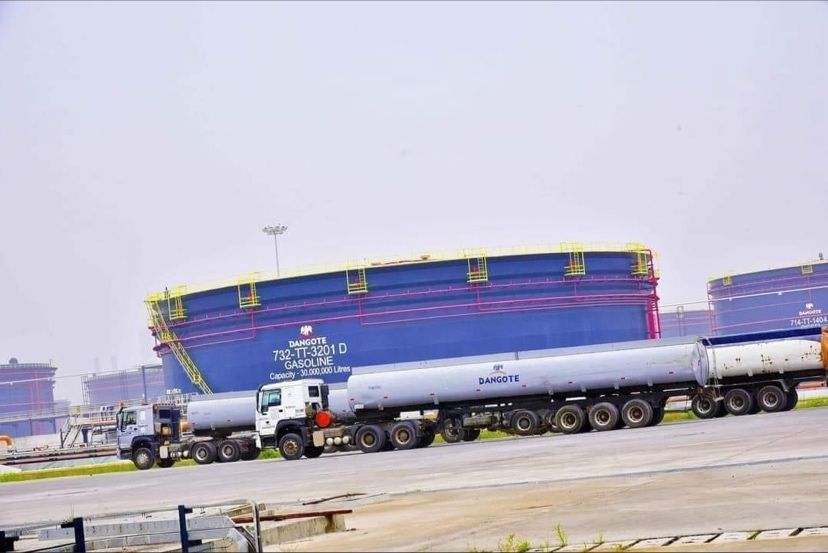By Michael Adetunji Alao
There is an ongoing debate among Nigerians which revolves around the incessant increase in the price of Premium Motor Spirit (PMS) more popularly known as petrol in the country. And, in this debate, accusing fingers are, sadly, wrongfully pointed in the direction of the Nigerian National Petroleum Company Limited (NNPCL). It is generally believed, albeit wrongly, that the NNPCL is responsible for the recurring increase in the pump price of petrol. The latest of such wrong accusations came from a former presidential spokesman, Dr Doyin Okupe, on Friday. He urged that the NNPCL and other oil marketers must not to make President Bola Tinubu look bad before Nigerians.
Okupe, in a statement on Friday titled: ‘Dangote Refinery, NNPCL, Oil Marketers and the Voodoo of PMS Pricing’, urged all oil stakeholders to be sensitive to the plights of Nigerians.
According to him, the emerging scenario in PMS pricing appears to aim at making the government, which is no longer involved in petroleum pricing, look bad and indirectly heap undeserved blame on President Tinubu. What Okupe failed to admit is that the NNPCL has been and will always be the representative of the government in anything that goes on in the oil and gas industry. And if Okupe is saying that the government no longer dictates the price of petrol, he has indirectly admitted that the NNPCL no longer dictate the price of petrol.
Whatever the case, it must, however, be emphasised that this perception by the public is grossly wrong. When one scrutinizes what many stakeholders, who are more familiar with the goings on in the industry than casual observers are saying, the preponderance of opinion is that Dangote and his Refinery is to blame and not the NNPCL.
If the truth must be told, the Dangote Refinery is primarily to blame for the current situation. As at the time of writing this piece, the Independent Petroleum Marketers Association of Nigeria (IPMAN) is insisting that Dangote Refinery must create the ‘right conditions’ for its members to do business.
By the admission of President of the Dangote Group, Alhaji Aliko Dangote, there is a whopping 500 million litres of petrol available for sale to end fuel importation. However, IPMAN members are not convinced that the management of the refinery has done enough to carry stakeholders along in its fuel supply strategy. In essence, IPMAN is alleging a hide and seek game by the Dangote Refinery.
IPMAN’s position was made public during the week by the National Assistant Secretary, Yakubu Suleiman. He insisted that Dangote Refinery has to make things easy for retailers to patronise it and that blackmailing members of the group will not solve the problem.
“As IPMAN, Dangote was supposed to have invited us for engagements—not just IPMAN, but all stakeholders, including MOMAN and DAPMAN. Unfortunately, until this moment, there has been no engagement,” Suleiman said.
In what sounds like a lamentation, Suleiman said: “It’s only IPMAN that has tried to engage him. We went to Dangote about three to four times seeking a meeting to discuss synergy between IPMAN and Dangote, but all to no avail. Most times, he tells us he will get back to us.
“IPMAN, as a stakeholder in the industry, is very happy to work with Dangote and buy products from him, but the conditions must be right. Examples include the price he is offloading at and the ease of loading.”
The question is what does IPMAN mean by “but the conditions must be right” which include “the price he is offloading”? The indisputable fact is that NNPCL cannot in anyway dictate to Dangote Refinery and for the now, none of the four NNPCL controlled refineries is working. Form all indications, Dangote Refinery is holding the yam, the knife and the palm oil. That means a lot.
It is in this regard that the argument of Suleiman makes absolute sense when he stated that the price per litre of petrol at Dangote Refinery and additional charges are not making the product competitive in the market with imported fuel.
“If Dangote has a product selling for N1,000, let’s assume, and there’s another place selling for N900, we can’t just say, for the sake of our relationship with Dangote, that we’ll instruct our members to buy there. We must go where the price is lower, where we’ll get profit,” he said.
And the most revealing of all his arguments was that “Crude prices are coming down internationally, but Dangote’s rate was N995 per litre, and you have to arrange for your own cargo and loading. With additional costs for transport and depot fees, how can we sell it at the final outlet?“
At the end of the day, when all is said and done, the Dangote Refinery must find a way to engage with the leadership of IPMAN and other relevant stakeholders in the industry.
It would seem that while Dangote is bent on making maximum profit from his wares, he is also at the same time making the NNPCL and the independent marketers look culpable for the incessant price hike of petrol.
“I am expecting the NNPC or the marketers to stop importing, they should come and pick because we have what they need.
“I don’t know whether you understand what it takes to keep half a billion litres inside our tank,” he had declared. But for how much is he will to let it go?
Before now, the Dangote Group was known predominantly for its dominance in cement production. He has now made significant inroads into the oil sector. The company’s refinery in Lagos is touted to be one of the largest in Africa. While this venture is anticipated to enhance Nigeria’s refining capacity and reduce dependence on imported fuel, the realities of the market and Dangote’s influence raise concerns about pricing and access.
One major argument is that Dangote’s refinery, despite its potential, could create a monopolistic environment and that is what seems to be staring Nigerians in the face now.
By controlling a significant portion of the refining capacity, Dangote can influence prices in a manner that might not align with the best interests of the average Nigerian consumer. This consolidation of power could lead to price hikes that are unjustifiable, particularly if other players are pushed out of the market or are unable to compete.
With Dangote’s refinery positioned as a major player, the company has the potential to manipulate market sentiments.
Moreover, as the refinery nears full operational capacity, the expectation of increased supply should ideally lead to lower prices. However, the fear remains that Dangote could prioritize profits over public welfare, maintaining high prices even when supply increases. This strategy could be framed as a means of recouping investments but at the cost of the average Nigerian citizen who is already struggling with economic pressures.
When the government removes or reduces subsidies, the immediate impact is felt by consumers in the form of higher petrol prices. If Dangote stands to gain from such policy changes—whether through direct ownership of the refinery or indirect benefits—it raises ethical questions about the extent to which his business motives are shaping national energy policies. Consequently, the public perception of Dangote as a key player in the rising costs of petrol is further solidified.
While Nigerian National Petroleum Company Limited (NNPCL) also plays a critical role in the oil sector, the perception of it being the primary culprit for rising petrol prices is less pronounced. NNPCL may have been characterized by bureaucratic inefficiencies which certainly contribute to the challenges facing the sector. However, it is Dangote’s market maneuvers and strategic positioning that appear to overshadow these issues.
NNPCL’s pricing mechanisms are often influenced by external factors, such as international crude prices and operational costs. In contrast, Dangote’s pricing can be viewed as more autonomous, given his control over crude purchase and refining. This independence allows him to set prices that may not always reflect the actual market conditions, especially when factoring in the broader economic landscape of Nigeria.
In conclusion, while the complexities of Nigeria’s oil market involve numerous stakeholders, the focus on Aliko Dangote as a central figure in the current petrol price crisis is not unfounded. His influential position in the market, potential for price manipulation, and the intertwined relationship with government policies all contribute to the perception that he bears significant responsibility for the rising costs of petrol. As Nigeria continues to navigate these challenges, the actions of both Dangote and NNPCL will undoubtedly remain under scrutiny, but it is imperative for the public to recognize the broader implications of market control in an economy that is already struggling.
Alao, a public affairs analyst, writes from Lagos.
Culled from The Nation Newspapers
























Leave a comment